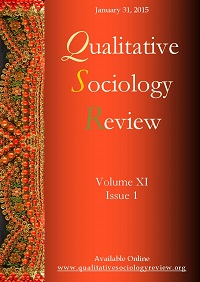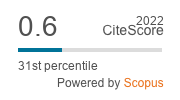Researching Children’s Multiple Family Relations: Social Network Maps and Life-Lines as Methods
DOI:
https://doi.org/10.18778/1733-8077.11.1.03Keywords:
Family Relations, Children, Life-Line Method, Social Network Maps, Visual Methods, Sensitive IssuesAbstract
Visual methods are reported to have certain advantages when conducting interviews on sensitive topics, such as intimate spaces, home-related ethical issues, and vulnerable families. In this article, we concentrate on two visual methods: social network maps and life-lines. In our research project on children’s well-being and emotional security in multiple family relations, we collected data by interviewing children and asking them to complete social network maps and life-lines. We discuss the suitability of these two visual methods for describing children’s close relationships with their family members and significant others. Combining these two methods during an interview process with children has not very often been tested. It is thus argued that these particular methods help a child to explain his or her family relations and life events. For the researcher interested in studying challenging and complex family relations, they can be extremely useful tools.
Downloads
References
Ajodhia-Andrews, Amanda and Rachel Berman. 2009. “Exploring School Life From the Lens of a Child Who Does Not Use Speech to Communicate.” Qualitative Inquiry 15(5):931-951.
Google Scholar
DOI: https://doi.org/10.1177/1077800408322789
Alasuutari, Maarit. 2005. “Mikä rakentaa vuorovaikutusta lapsen haastattelussa?” Pp. 145-162 in Haastattelu. Tutkimus, tilanteet ja vuorovaikutus, edited by J. Ruusuvuori and L. Tiittula. Tampere: Vastapaino.
Google Scholar
Amato, Paul R. 2000. “The Consequences of Divorce for Adults and Children.” Journal of Marriage and the Family 62:1269-1287.
Google Scholar
DOI: https://doi.org/10.1111/j.1741-3737.2000.01269.x
Amato, Paul R. 2010. “Research on Divorce: Continuing Trends and New Developments.” Journal of Marriage and Family 72:650-666.
Google Scholar
DOI: https://doi.org/10.1111/j.1741-3737.2010.00723.x
Andersson, Gunvor. 2005. “Family Relations, Adjustment, and Well-Being in a Longitudinal Study of Children in Care.” Child and Family Social Work 1:43-56.
Google Scholar
DOI: https://doi.org/10.1111/j.1365-2206.2005.00337.x
Andersson, Gunvor. 2009. “Foster Children: A Longitudinal Study of Placements and Family Relationships.” International Journal of Social Welfare 18:13-26.
Google Scholar
DOI: https://doi.org/10.1111/j.1468-2397.2008.00570.x
Barker, John and Susie Weller. 2003. “Geography of Methodological Issues in Research With Children.” Qualitative Research 3:207-227.
Google Scholar
DOI: https://doi.org/10.1177/14687941030032004
Brannen, Julia, Ellen Heptinstall, and Kalwant Bhopal. 2000. Connecting Children. Care and Family Life in Later Childhood. London, New York: Routledge Falmer.
Google Scholar
Castrén, Anna-Maija. 2009. Onko perhettä eron jälkeen? Eroperhe, etäperhe, uusperhe. Helsinki: Gaudeamus.
Google Scholar
Charles, Nickie and Charlotte A. Davies. 2008. “My Family and Other Animals: Pets as Kin.” Sociological Research Online 13(5). Retrieved December 10, 2014 http://www.socresonline.org.uk/13/5/4.html
Google Scholar
DOI: https://doi.org/10.5153/sro.1798
Cree, Viviene E., Helen Kay, and Kay Tisdall. 2002. “Research With Children: Sharing Dilemmas.” Child and Family Social Work 7:47-56.
Google Scholar
DOI: https://doi.org/10.1046/j.1365-2206.2002.00223.x
Cummings, Mark E. and Patrick T. Davies. 1995. “The Impact of Parents on Their Children: An Emotional Security Perspective.” Annals of Child Development 10:167-208.
Google Scholar
Darbyshire, Philip, Colin MacDougall, and Wendy Schiller. 2005. “Multiple Methods in Qualitative Research With Children: More Insight or Just More?” Qualitative Research 5:417-436.
Google Scholar
DOI: https://doi.org/10.1177/1468794105056921
Davies, Karen. 1996. “Capturing Women’s Lives. A Discussion of Time and Methodological Issues.” Women’s Studies International Forum 19(6):579-588.
Google Scholar
DOI: https://doi.org/10.1016/S0277-5395(96)00070-2
Davies, Patrick T. and Mark E. Cummings. 1998. “Exploring Children’s Emotional Security as a Mediator of the Link Between Marital Relations and Child Adjustment.” Child Development 69:124-139.
Google Scholar
DOI: https://doi.org/10.1111/j.1467-8624.1998.tb06138.x
Davies, Patrick T., Marcia A. Winter, and Dante Cicchetti. 2006. “The Impact of Emotional Security Theory for Understanding and Treating Childhood Psychopathology.” Development and Psychopathology 18:707-735.
Google Scholar
DOI: https://doi.org/10.1017/S0954579406060354
Eder, Donna and Laura Fingerson. 2002. “Interviewing Children and Adolescents.” Pp. 181-201 in Handbook of Interview Research, edited by J. Gubrium and J. Holstein. Thousand Oaks, London, New Delhi: Sage.
Google Scholar
DOI: https://doi.org/10.4135/9781412973588.n13
Eriksson, Maria and Elisabet Näsman. 2010. “Interviews With Children Exposed to Violence.” Children and Society 10:1-11.
Google Scholar
DOI: https://doi.org/10.1111/j.1099-0860.2010.00322.x
Gabb, Jacqui. 2008. Researching Intimacy in Families. Houndmills, Basingstoke, Hampshire: Palgrave Macmillan.
Google Scholar
DOI: https://doi.org/10.1057/9780230227668
Greene, Sheila and Malcolm Hill. 2005. “Researching Children’s Experience: Methods and Methodological Issues.” Pp. 1-21 in Researching Children’s Experience, edited by S. Greene and D. Hogan. Los Angeles, London, New Delhi, Singapore, Washington: Sage.
Google Scholar
DOI: https://doi.org/10.4135/9781849209823
Greene, Sheila and Diane Hogan. 2005. Researching Children’s Experience. Los Angeles, London, New Delhi, Singapore, Washington: Sage.
Google Scholar
Hämäläinen, Kati. 2012. Perhehoitoon sijoitettujen lasten antamat merkitykset kodilleen ja perhesuhteilleen. Helsinki: Väestöntutkimuslaitoksen julkaisusarja D56/2012. Retrieved December 05, 2014 http://vaestoliitto-fi-bin.directo.fi/@Bin/98f69897eb446848776b84a2dc60f8e8/1417796675/application/pdf/3231118/H%C3%A4m%C3%A4l%C3%A4inen_Perhehoitoon%20sijoitettujen_net.pdf
Google Scholar
Heath, Sue et al. 2009. Researching Young People’s Lives. Los Angeles: Sage.
Google Scholar
DOI: https://doi.org/10.4135/9781446249420
Helavirta, Susanna. 2006. “Lasten hyvä ja huono elämä eläytymistarinoiden valossa.” Pp. 195-221 in Lapset ja sosiaalityö, edited by H. Forsberg, A. Ritala-Koskinen, and M. Törrönen. Jyväskylä: PS-kustannus.
Google Scholar
Holtan, Amy. 2008. “Family Types and Social Integration in Kinship Foster Care.” Children and Youth Services Review 30:1022-1036.
Google Scholar
DOI: https://doi.org/10.1016/j.childyouth.2008.01.002
Hurtig, Johanna. 2006. “Lasten tieto sosiaalityön haasteena.” Pp. 167-193 in Lapset ja sosiaalityö, edited by H. Forsberg, A. Ritala-Koskinen, and M. Törrönen. Jyväskylä: PS-kustannus.
Google Scholar
Jallinoja, Riitta, Helena Hurme, and Kimmo Jokinen, (eds.). 2014. Perhetutkimuksen suuntauksia. Helsinki: Gaudeamus.
Google Scholar
Jokinen, Kimmo and Marjo Kuronen. 2011. “Research on Families and Family Policies in Europe—Major Trends.” Pp. 13-118 in Wellbeing of Families in Future Europe. Challenges for Research and Policy, edited by U. Uhlendorff, M. Rupp, and M. Euteneuer. Retrieved December 05, 2014 http://europa.eu/epic/docs/family_platform_book1.pdf
Google Scholar
Jokinen, Kimmo et al. 2013. “Lapset kertovat perheestä – mitä kuulemme?” Pp. 175-197 in Ketä kiinnostaa? Lasten ja Nuorten hyvinvointi ja syrjäytyminen, edited by J. Reivinen, L. Vähäkylä. Helsinki: Gaudeamus.
Google Scholar
Konecki, Krzysztof T. 2009. “Teaching Visual Grounded Theory.” Qualitative Sociology Review 5(3):64-92.
Google Scholar
DOI: https://doi.org/10.18778/1733-8077.5.3.05
Mason, Jennifer. 2007. Qualitative Researching. Los Angeles, London, New Delhi, Singapore: Sage.
Google Scholar
Mason, Jennifer and Becky Tipper. 2008. “Being Related: How Children Define and Create Kinship.” Childhood 15(4):441-460.
Google Scholar
DOI: https://doi.org/10.1177/0907568208097201
McNay, Margaret. 2009. “Absent Memory, Family Secrets, Narrative Inheritance.” Qualitative Inquiry 15(7):1178-1188.
Google Scholar
DOI: https://doi.org/10.1177/1077800409334236
Mishna, Faye, Beverley J. Antle, and Cheryl Regehr. 2004. “Tapping the Perspectives of Children: Emerging Ethical Issues in Qualitative Research.” Qualitative Social Work 4:449-468.
Google Scholar
DOI: https://doi.org/10.1177/1473325004048025
Notko, Marianne et al. 2013. “Encountering Ethics in Studying Challenging Family Relations.” Families, Relationships, and Societies 2(3):395-408.
Google Scholar
DOI: https://doi.org/10.1332/204674313X665085
Parry, Odette, Carolyn Thomson, and Gerry Fowkes. 1999. “Life Course Data Collection: Qualitative Interviewing Using the Life Grid.” Sociological Research Online 4(2). Retrieved September 11, 2013 http://www.socresonline.org.uk/4/2/parry.html
Google Scholar
DOI: https://doi.org/10.5153/sro.233
Phelan, Shanon and Elizabeth Anne Kinsella. 2013. “Picture This… Safety, Dignity, and Voice—Ethical Considerations for the Reflexive Researcher.” Qualitative Inquiry 19(2):81-90.
Google Scholar
DOI: https://doi.org/10.1177/1077800412462987
Pink, Sarah. 2004. “Visual Methods.” Pp. 391-406 in Qualitative Research Practice, edited by C. Seale et al. London, Thousand Oaks, New Delhi: Sage.
Google Scholar
Pirskanen, Henna. 2009. “‘Was Your Father a Problem Drinker?’ Challenges of Life Story Interviewing in Researching Adult Sons of Problem Drinking Fathers.” Journal of Comparative Social Work 1. Retrieved December 05, 2014 http://jcsw.no/local/media/jcsw/docs/jcsw_issue_2009_1_7_article.pdf
Google Scholar
DOI: https://doi.org/10.31265/jcsw.v4i1.47
Pösö, Tarja. 2004. Vakavat silmät ja muita kokemuksia koulukodista. Helsinki: Stakes.
Google Scholar
Pösö, Tarja. 2008. “Kiistanalaiset perhesuhteet ja tutkimisen moraali.” Pp. 93-107 in Perhesuhteet puntarissa, edited by E. Sevon and M. Notko. Helsinki: Palmenia.
Google Scholar
Punch, Samantha. 2002a. “Interviewing Strategies With Young People: The ‘Secret Box,’ Stimulus Material, and Task-Based Activities.” Children & Society 16:45-56.
Google Scholar
DOI: https://doi.org/10.1002/chi.685
Punch, Samantha. 2002b. “Research With Children. The Same or Different From Research With Adults?” Childhood 9(3):321-341.
Google Scholar
DOI: https://doi.org/10.1177/0907568202009003005
Roberts, Helen. 2000. “Listening to Children: And Hearing Them.” Pp. 225-240 in Research With Children. Perspectives and Practices, edited by P. Christensen and A. James. London, New York: Falmer Press.
Google Scholar
Rose, Gillian. 2001. Visual Methodologies. London, Thousand Oaks, New Delhi: Sage.
Google Scholar
Ryen, Anne. 2011. “Ethics and Qualitative Research.” Pp. 416-438 in Qualitative Research, edited by D. Silverman. Los Angeles, London, New Delhi, Singapore, Washington: Sage.
Google Scholar
Sheridan, Joanna, Kerry Chamberlain, and Ann Dupuis. 2011. “Timelining: Visualizing Experience.” Qualitative Research 11(5):552-569.
Google Scholar
DOI: https://doi.org/10.1177/1468794111413235
Silva, Elizabeth and Carol Smart. 1999. “The New Practices and Politics of Family Life.” Pp. 1-12 in The New Family?, edited by E. Silva and C. Smart. London, Thousand Oaks, New Delhi: Sage.
Google Scholar
DOI: https://doi.org/10.4135/9781446218150.n1
Smart, Carol. 2002. “From Children’s Shoes to Children’s Voices.” Family Court Review 40(3):307-319.
Google Scholar
DOI: https://doi.org/10.1111/j.174-1617.2002.tb00842.x
Smart, Carol. 2007. Personal Life. New Directions in Sociological Thinking. Cambridge: Polity Press.
Google Scholar
Smart, Carol, Bren Neale, and Amanda Wade. 2001. The Changing Experience of Childhood. Families and Divorce. Cambridge: Polity Press.
Google Scholar
Smith, Dorothy E. 1993. “SNAF—Standard North-American Family as an Ideological Code.” Journal of Family Issues 14(1):50-65.
Google Scholar
DOI: https://doi.org/10.1177/0192513X93014001005
Thomson, Rachel et al. 2004. “Inventing Adulthoods: A Biographical Approach to Understanding Youth Citizenship.” The Sociological Review 52(2):218-239.
Google Scholar
DOI: https://doi.org/10.1111/j.1467-954X.2004.00466.x
Veale, Angela. 2005. “Creative Methodologies in Participatory Research With Children.” Pp. 253-272 in Researching Children’s Experience, edited by S. Greene and D. Hogan. Los Angeles, London, New Delhi, Singapore, Washington: Sage.
Google Scholar
Warin, Jo. 2011. “Ethical Mindfulness and Reflexivity: Managing a Research Relationship With Children and Young People in a 14-Year Qualitative Longitudinal Research (QLR) Study.” Qualitative Inquiry 17:805-814.
Google Scholar
DOI: https://doi.org/10.1177/1077800411423196
Weller, Susie and Rosalind Edwards. 2011. Researching Children’s Lateral Relationships Over Time: Methodological and Ethical Lessons From a Qualitative Longitudinal Study. Families & Social Capital Research Group Working Paper No. 30. London South Bank University. Retrieved December 10, 2014 http://www.lsbu.ac.uk/__data/assets/pdf_file/0006/9384/researching-childrens-lateral-relationships-families-research-working-paper.pdf
Google Scholar
White, Allen and Naomi Bushkin. 2011. “More Than Methods: Learning From Research With Children Seeking Asylum in Ireland.” Population, Space, and Place 17(4):326-337.
Google Scholar
DOI: https://doi.org/10.1002/psp.602
Widmer, Eric. 2006. “Who Are My Family Members? Bridging and Binding Social Capital in Family Configurations.” Journal of Social and Personal Relationships 23:979-998.
Google Scholar
DOI: https://doi.org/10.1177/0265407506070482
Wilson, Sarah et al. 2007. “Young People, Biographical Narratives and the Life Grid: Young People’s Accounts of Parental Substance Use.” Qualitative Research 7(1):135-151.
Google Scholar
DOI: https://doi.org/10.1177/1468794107071427
Downloads
Published
How to Cite
Issue
Section
License

This work is licensed under a Creative Commons Attribution-NonCommercial-NoDerivatives 4.0 International License.











